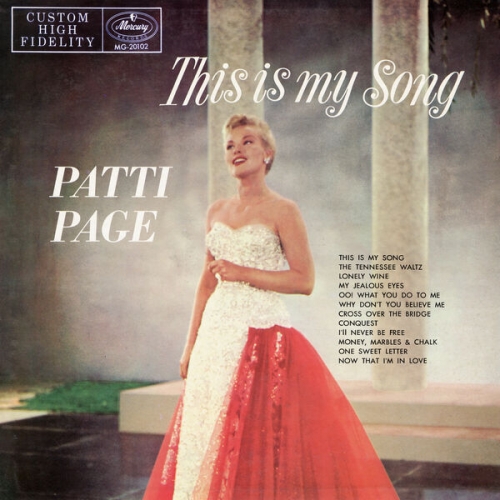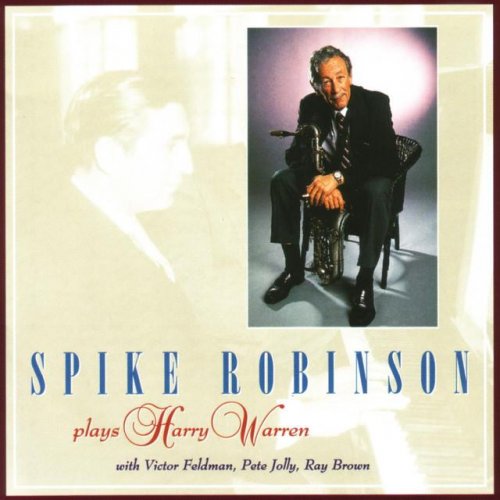Esa-Pekka Salonen - Stravinsky: Oedipus Rex (1992)
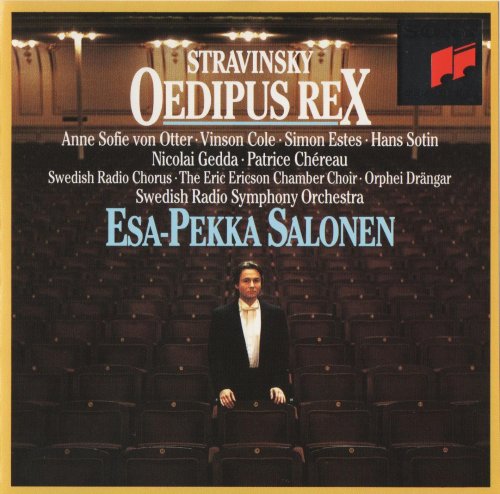
Artist: Esa-Pekka Salonen
Title: Stravinsky: Oedipus Rex
Year Of Release: 1992
Label: Sony Classical
Genre: Classical
Quality: FLAC (image+.cue,log,scans)
Total Time: 50:15
Total Size: 219 Mb
WebSite: Album Preview
Tracklist: Title: Stravinsky: Oedipus Rex
Year Of Release: 1992
Label: Sony Classical
Genre: Classical
Quality: FLAC (image+.cue,log,scans)
Total Time: 50:15
Total Size: 219 Mb
WebSite: Album Preview
Igor Stravinsky (1882-1971)
Oedipux Rex - opera-oratorio in two acts
01. Oedipus Rex, opera-oratorio in 2 acts- Prologue- -Spectateurs! Vous allez entendre une version latine d'Oedipe-Roi? [0:00:49.30]
02. Oedipus Rex, opera-oratorio in 2 acts- Act 1- -Caedit nos pestis? [0:03:24.67]
03. Oedipus Rex, opera-oratorio in 2 acts- Act 1- -Liberi, vos liberado? [0:03:26.33]
04. Oedipus Rex, opera-oratorio in 2 acts- Act 1- -Respondit deus? [0:03:07.42]
05. Oedipus Rex, opera-oratorio in 2 acts- Act 1- -Non reperias vetus scelus? [0:03:28.08]
06. Oedipus Rex, opera-oratorio in 2 acts- Act 1- -Oedipe interroge la fontaine de vérité? [0:02:21.42]
07. Oedipus Rex, opera-oratorio in 2 acts- Act 1- -Dicere non possum? [0:02:25.08]
08. Oedipus Rex, opera-oratorio in 2 acts- Act 1- -Rex peremptor regis est- - -Invidia fortunam odit? [0:03:11.57]
09. Oedipus Rex, opera-oratorio in 2 acts- Act 1- -Gloria!? [0:01:10.38]
10. Oedipus Rex, opera-oratorio in 2 acts- Act 2- -La dispute des princes attire Jocaste? [0:00:54.05]
11. Oedipus Rex, opera-oratorio in 2 acts- Act 2- -Gloria!? [0:01:10.55]
12. Oedipus Rex, opera-oratorio in 2 acts- Act 2- -Nonn' erubescite, reges? [0:04:20.05]
13. Oedipus Rex, opera-oratorio in 2 acts- Act 2- -Ne probentur oracula? [0:02:20.67]
14. Oedipus Rex, opera-oratorio in 2 acts- Act 2- -Cave oracula!- - -Trivium, trivium...? [0:01:27.10]
15. Oedipus Rex, opera-oratorio in 2 acts- Act 2- -Oracula mentiuntur? [0:02:01.43]
16. Oedipus Rex, opera-oratorio in 2 acts- Act 2- -Le témoin du meurtre sort de l'ombre? [0:00:30.37]
17. Oedipus Rex, opera-oratorio in 2 acts- Act 2- -Adest omniscius pastor? [0:02:24.45]
18. Oedipus Rex, opera-oratorio in 2 acts- Act 2- -Oportebat tacere? [0:01:31.43]
19. Oedipus Rex, opera-oratorio in 2 acts- Act 2- -Nonne monstrum rescituri? [0:01:21.27]
20. Oedipus Rex, opera-oratorio in 2 acts- Act 2- -In monte reppertus est? [0:01:00.33]
21. Oedipus Rex, opera-oratorio in 2 acts- Act 2- -Natus sum quo nefastum est? [0:00:46.35]
22. Oedipus Rex, opera-oratorio in 2 acts- Act 2- -Et maintenant, vous allez entendre? [0:01:18.35]
23. Oedipus Rex, opera-oratorio in 2 acts- Act 2- -Divum Iocastae caput mortuum!? [0:03:04.40]
24. Oedipus Rex, opera-oratorio in 2 acts- Act 2- -Ecce! Regem Oedipoda? [0:02:21.20]
Performers:
Swedish Radio Chorus
The Eric Ericson Chamber Choir
Orphei Drängar
Swedish Radio Symphony Orchestra
Esa-Pekka Salonen - conductor
with:
Vinson Cole
Anne Sofie von Otter
Simon Estes
Hans Sotin
Nicolai Gedda
Patrice Chéreau
Composed in 1925 and first staged in 1928, ‘Oedipus Rex’ was the first wholly original large-scale work in Stravinsky’s mature neo-classical style. The approach to choral and orchestral writing first heard here would remain very much the same for the next 25 years; more than mere echoes of ‘Oedipus’ can be heard in such well-known works as ‘Symphony of Psalms’ (1930), “Symphony in C’ (1940), Mass (1948), and the brilliant, Hogarth-inspired opera ‘The Rake’s Progress’ (1951).
Stravinsky wanted to write, as he put it, “an opera or an oratorio on a universally familiar subject (so as to) concentrate the whole attention of the audience undistracted by the story, on the music itself, which would thus become both word and action.” To this end, the French libretto by Jean Cocteau was translated into Latin; “The idea was that a text for music might be endowed with a certain monumental character by translation ‘backwards’ so to speak from a secular to a sacred language.”
That “monumental character” is very much in evidence in Salonen’s expansive reading, beautifully recorded with Sony’s 20-bit digital technology in Stockholm’s Berwald Hall in May of 1991.
Lyric tenor Vinson Cole is a superbly compelling Oedipus, convincingly portraying the whole gamut of emotion while handling Stravinsky’s virtuosic vocal writing with ease. Some may find his characterization a little too understated at times, but he is invariably “on” musically, bringing lots of songful angst to the role of the doomed king. Likewise, Anne Sofie von Otter is a passionate and wholly persuasive Jocasta, imbuing her part with enormous beauty and conviction.
As Kreon, the great baritone Simon Estes imbues the part with much weight and lyric force in spite of his somewhat limited expressive palette. More affecting and subtle is his turn in the small role of the Messenger late in the piece.
Famed Swedish tenor Nicolai Gedda as the Shepherd, and the always-superb Hans Sotin as Tiresias both shine in their small roles. Gedda has a little difficulty with intonation in the fiendishly difficult aria ‘Opertebat tacere,’ while Sotin seems a bit weak at the low-end of his range in ‘Dicere non possum;’ but both turn in beautifully expressive and memorably dramatic performances here.
Perhaps the real star of this recording is the chorus; the men of the Eric Ericson Chamber Choir are nothing short of miraculous! Just listen to the hair-raising ‘Gloria Gloria’ chorus accompanying Jocasta’s entrance in Act 2, or the powerful opening chorus of Act 1, ‘Caedit nos pestis.’ As in the original Greek tragedies, Stravinsky conceived the choral part as a character unto itself, and not as an ancillary or subsidiary component of the drama (as in almost any 18th or 19th-century opera) and his conception is realized here with stunning effect.
Only one small complaint; the beautiful narration (in Jean Cocteau’s original French) may leave some English-speaking listeners out in the cold, especially as the libretto is almost impossible to follow in the awkward four-language format provided by Sony. But don’t let such a small thing deter you from enjoying this gem of a performance, certainly not when it’s available at so reasonable a price! Highly recommended! -- Jerald Thomas Hawhee
Stravinsky wanted to write, as he put it, “an opera or an oratorio on a universally familiar subject (so as to) concentrate the whole attention of the audience undistracted by the story, on the music itself, which would thus become both word and action.” To this end, the French libretto by Jean Cocteau was translated into Latin; “The idea was that a text for music might be endowed with a certain monumental character by translation ‘backwards’ so to speak from a secular to a sacred language.”
That “monumental character” is very much in evidence in Salonen’s expansive reading, beautifully recorded with Sony’s 20-bit digital technology in Stockholm’s Berwald Hall in May of 1991.
Lyric tenor Vinson Cole is a superbly compelling Oedipus, convincingly portraying the whole gamut of emotion while handling Stravinsky’s virtuosic vocal writing with ease. Some may find his characterization a little too understated at times, but he is invariably “on” musically, bringing lots of songful angst to the role of the doomed king. Likewise, Anne Sofie von Otter is a passionate and wholly persuasive Jocasta, imbuing her part with enormous beauty and conviction.
As Kreon, the great baritone Simon Estes imbues the part with much weight and lyric force in spite of his somewhat limited expressive palette. More affecting and subtle is his turn in the small role of the Messenger late in the piece.
Famed Swedish tenor Nicolai Gedda as the Shepherd, and the always-superb Hans Sotin as Tiresias both shine in their small roles. Gedda has a little difficulty with intonation in the fiendishly difficult aria ‘Opertebat tacere,’ while Sotin seems a bit weak at the low-end of his range in ‘Dicere non possum;’ but both turn in beautifully expressive and memorably dramatic performances here.
Perhaps the real star of this recording is the chorus; the men of the Eric Ericson Chamber Choir are nothing short of miraculous! Just listen to the hair-raising ‘Gloria Gloria’ chorus accompanying Jocasta’s entrance in Act 2, or the powerful opening chorus of Act 1, ‘Caedit nos pestis.’ As in the original Greek tragedies, Stravinsky conceived the choral part as a character unto itself, and not as an ancillary or subsidiary component of the drama (as in almost any 18th or 19th-century opera) and his conception is realized here with stunning effect.
Only one small complaint; the beautiful narration (in Jean Cocteau’s original French) may leave some English-speaking listeners out in the cold, especially as the libretto is almost impossible to follow in the awkward four-language format provided by Sony. But don’t let such a small thing deter you from enjoying this gem of a performance, certainly not when it’s available at so reasonable a price! Highly recommended! -- Jerald Thomas Hawhee
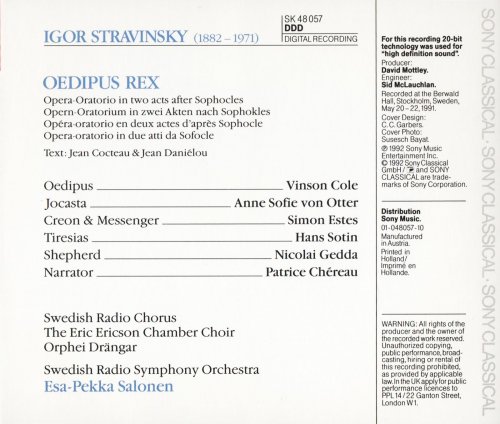
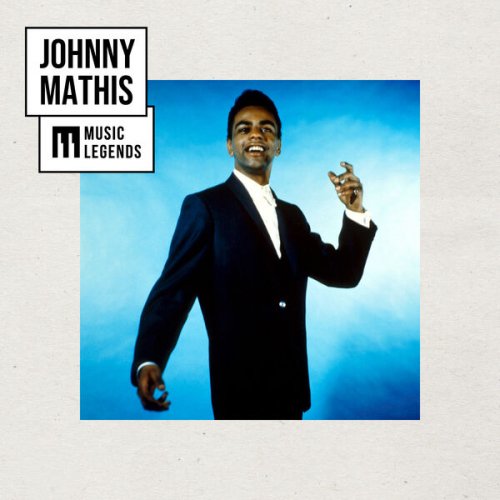

![Bill Frisell - In My Dreams (2026) [Hi-Res] Bill Frisell - In My Dreams (2026) [Hi-Res]](https://www.dibpic.com/uploads/posts/2026-02/1772013732_tpex4dl25956z_600.jpg)

![Mammal Hands - Circadia (2026) [Hi-Res] Mammal Hands - Circadia (2026) [Hi-Res]](https://www.dibpic.com/uploads/posts/2026-02/1771945393_folder.jpg)
